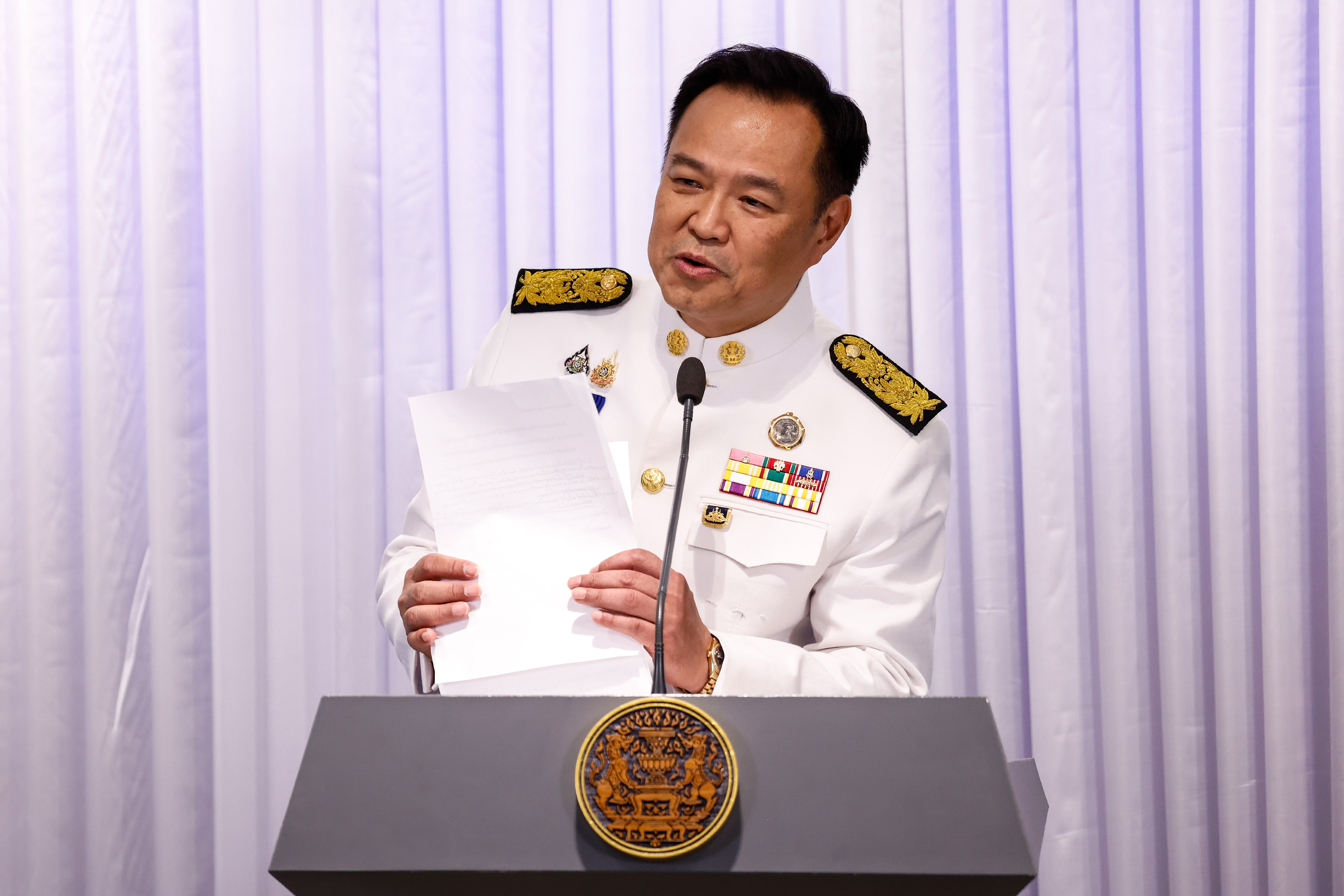
Thai Prime Minister Anutin Charnvirakul’s new government will unveil plans for short-term economic stimulus to boost consumption and help those struggling with heavy debt, racing to broaden support in its next four months in power.
Anutin’s minority government will also seek to stabilize the baht, according to Siripong Angkasakulkiat, a deputy leader of the ruling conservative Bhumjaithai Party. The currency’s recent rally to a four-year high, becoming Asia’s best-performing currency in the past month, has sparked calls for urgent intervention to protect exports and tourism.
A policy announcement to parliament has been tentatively slated for Oct 1 and Oct 2. Siripong said the government will outline plans to cut living costs, including by reviving a co-payment program and reducing energy and transport costs.
ALSO READ: Thai King endorses new cabinet under prime minister Anutin
“The policies will focus on addressing people’s economic livelihood issues and stimulating the economy in the short term,” Siripong told Bloomberg News in an interview. “The baht also needs to be managed, as it is too strong. The government also places importance on currency stability.”
Anutin, who became prime minister in August after the Constitutional Court ousted a rival party’s Paetongtarn Shinawatra as premier, has promised to dissolve the lower house of parliament within four months after delivering the policy statement under a deal with the opposition People’s Party. That will pave the way for an early election to be held within 60 days.
To stimulate the economy, the new government will bring back a so-called “half and half” co-payment scheme that was first introduced to boost spending during the COVID-19 pandemic.
Eligible Thai citizens will receive a digital cash handout — the amount is yet to be set — to cover 50 percent of the price of goods and services; those who file tax returns will see the government’s co-payment rise to 60 percent.
READ MORE: Thailand's new PM Anutin faces challenges with minority govt
Efforts to reduce the cost of living will also include cuts in electricity rates from January, Siripong said. The government will also aim to install about 1,500 megawatts of solar panels in local communities in coming months to help households curb power bills.
Relief for Thai consumers struggling under some of the region’s highest household debts will be a priority. The government will seek to restructure debts and resolve non-performing loans for borrowers owing less than 1 million baht, while helping “good borrowers” access cheap credit, Siripong said.


